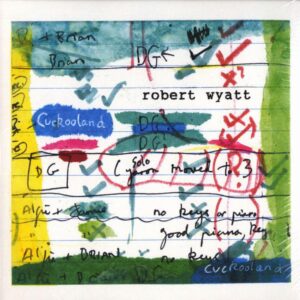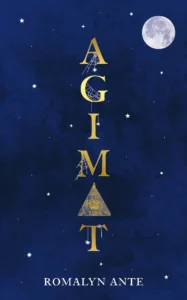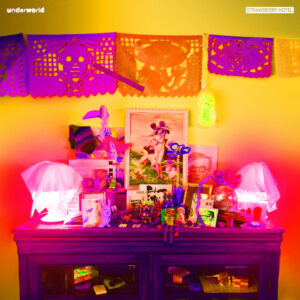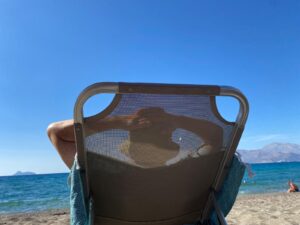Uncategorized
recorded in palestine and london
Today Alabaster DePlume – saxophonist, songwriter, poet, orator, activist, shares Prologue To A Blade, a series of creative statements setting the stage for a larger project arriving next year.

The Prologue includes a beautiful new digital EP – featuring two tracks recorded in Palestine with local musicians, pianist Sami El Enani and Qanoun player Laith Albandak, and a third track inspired by the experience of living in solidarity with the people of Palestine – which is out now on all digital music platforms.
This body of work lays the foundation for his evolving artistic journey, as he explores the role of dignity in healing and its impact on community, society, and humanity.
Gifts of Olive was für ein Lied, so traurig, so herzzerreissend. Robert Wyatt liebt es, das weiss ich.
small Matala morning conversation
Im Hotel.
- Du, ich muss dich was fragen. Ich bin Didier aus Graz.
- Michael.
- Ich habe der Nicole das schon gesagt. Nun frag ich mal.
- Nur zu.
- Bist du in der Musikbranche?
- Ja. Also, auf der anderen Seite. Im Radio
- Ich wusste es! Ich mach seit Jahrzehnten Musik.
- Was?
- Hardrock und Stoner. Circle Creek.
- Wir haben uns was zu erzählen.
Robert Wyatt interviewed
In einem ausführlichen Interview etwas älteren Datums (2008) – HIER in TheQuietus – spricht Robert Wyatt mit Jonny Mugwump über sein Leben und seine politischen Überzeugungen, seine Nervosität bei Aufnahmen mit Bjork und die Bedeutung von Unvollkommenheit in der Musik. By the way, he‘s still alive and kicking. Read about Richard Williams‘ visit at Robert‘s home recently in „The Blue Moment“!

I travelled three times to London to interview Robert and Alfe on „Dondestan“, „Shleep“ and „Cuckooland“ in the times of their release. Unforgettable, when, on the hottest day of that summer of 2003 , we were lead to the empty Purcell Room, that excellent concert hall, and then moved though every track of „Cuckooland“. At one pont Robert told me how Brian Eno sang his part of the uncanny „Forest“ with opulent arm gestures of an opera singer. (And what a deeply moving song that is, from two of my favourite singers ever!) Many of his stories blurring the lines between the private and the political. And such a great humour, too. He‘s life‘s company, always has been! (m.e.)
Motian continued : Jim Pepper
Paul Motian’s nice Cindy McGuirl maintains her uncle’s archive (Uncle Paul’s Jazz Closet Radio) and runs a revealing podcast with interesting, surprising, astonishing material from that extensive archive. This time material is presented on the occasion of Indigenous People’s Day related to Motian’s fellow musician Jim Pepper (1941-1992), a Kaw Muskogee Creek native. Yes right, the one and only Jim Pepper of the famous WITCHI-TAI-TO, that Peyote cult song. Besides Pepper there are more Native American influences in jazz and popular music e.g. Don Pullen, Don Cherry, Robbie Robertson and Jimi Hendrix.
here is THE BLOGSPOT and here is THE PODCAST

(c) Dany Gigoux Offener Brief von Brian Eno und Yanis Varoufakis
Brian Eno und Yanis Varoufakis fordern in offenem Brief – HIER – an den Internationalen Strafgerichtshof sofortiges Handeln gegen Kriegsverbrechen der israelischen Regierung.
…fondly remembered, JD Souther
He was a country maverick, and his famous 1979 song hit me hard and out of nowhere in a bavarian café in October 82 with full punch. Listen HERE. When Iistened there, it smashed me, ripped me into pieces and kindly rebuilt me, so that it could at least, too. „When I first started to write songs I was hanging out with Glenn and Jackson [Browne] and Don [Henley],” he told in 2006. “It was an acoustic guitar environment. We all made each other better musicians and songwriters.”
monthly revelations – november
// albums: erik honoré / underworld / kit downes // film: die fotografin (the female photographer) // prose: michael connelly‘s desert star // talk: thomas strônen or thomas morgan or … // poetry: romalyn ante: agimat // binge: slow horses (4) //archive: bo hansson (everything) / csn&y at fillmore east 1969

All „revelations“ will be installed close to the end of October. Nothing is guaranteed. Look at the list: some usual suspects, some surprises. And to be very clear from the start: Erik Honoré’s TRIAGE is one of my few five star albums of the year. Normally a running label for „literary“ crime novels from Scandinavia, TRIAGE is another, special kind of „Nordic Noir“. And my enthusiasm is by no way influenced by the fact I‘ve met Erik many times and seen him so often on stage during two decades of Kristiansand‘s Punktfestival. You can see the album as the third part of a trilogy of Erik Honoré albums, but it is a standalone that, for all the good reasons, should not fall prey to the section of „Buried Treasures“ in a Mojo edition from 2075.
Some people asked me about my encounter with Beth Gibbons in Bruxelles knowing she doesn’t give interviews for ages. And they cannot imagine that would happen an a small blog deliberately running under the radar. So time is ready to spread one’s wings and be blown away. Think of Christmas. (m.e.)
Back to the 60’s, and with the words of Graham Nash: „Hearing the newly discovered tapes that comprise Live At The Fillmore East, 1969 was something of a revelation. When you listen to the acoustic tracks particularly, you can really tell how much we loved each other and the music we were making. This was only weeks after Woodstock, which was only our second time appearing in front of people. It was so early in our career and we were still trying to figure it all out. CSNY is a much different band than CSN. The addition of Neil really kicked us in the ass.”
We could easily add the reissue of „An Electric Storm“ by White Noise, from 1969 again, but let‘s do a little hommage to Phil Aston instead, who recently reviewed the vinyl reissue. Nearly half of us flowworkers know this album, so HERE is Phil remembering the beauty amd madness of a very strange work of early days’ electronica.

2024 is a year full of fantastic albums with female voices, from Beth Gibbons to Sidsel Endresen. And there is „Camelot“ from Canadian singer / songwriter Jennifer Castle HERE her song „Blowing Kisses“. A quote from Rob Hughes from Uncut:„Released to soundtrack an episode of hit TV comedy-drama The Bear (Castle used to work in a Toronto restaurant with the show’s co-producer and cast member Matty Matheson), it’s an eloquent tune that pushes the value of basking in the moment (that immediately rings a Beth Gibbons bell), driven by jazz-ballad piano and a sumptuous string arrangement from Owen Pallett for Macedonia’s FAMES Skopje Studio Orchestra. There’s all the grace of a spiritual hymn, but it sounds like a fresh vow. “Don’t get it twisted”, sings Castle, gliding around the melody and rising into a soft rapture, “My heart’s still in it / My dedication’s a star”.
Surreale Abenteuer im Strawberry Hotel
Zehn Jahre ist es her, da traf ich Brian Eno und Karl Hyde in Enos Londoner Studio in Notting Hill, unweit der stets umtriebigen Portobello Road, und oft mischte ich mich, nach dem Besuch bei Brian, in das bunte Treiben des Portobello Market. Ich liebe es, in solch pulsierendes Menschentreiben einzutauchen. Underworlds neues Album zu hören, ist ein vergleichbare Unternehmung: bizarr, frohlockend und psychedelisch wie das Cover, facettenreich wie zu besten Zeiten, mit gutem Gespür auch fürs Innehalten.

Auf „Black Poppies“, dem markanten und doch ruhigen Eröffnungsstück von Underworld, sind die gesprächigen, elektronisch bearbeitete Gesänge in leise puslierende Synthies eingebettet, und wie Gospelharnonien geschichtet. Das erinnert mich an Brian Enos Stimmführungen auf „We Let It In“ und „Garden Of Stars“, von „Foreverandevernomore“.
Während jene Platte jedoch eine Welt am Abgrund erforschte, bietet diese Platte, soll ich es so lapidar sagen, Optimismus. „Du magst dich anfangs ein wenig seltsam fühlen, aber verändere dich weiter“, verkündet Hyde, und dieser Satz scheint den hartnäckigen Unwillen der Zwei von Underworld zusammenzufassen, sich auf Lorbeeren auszuruhen.
Seit dem allmächtigen Dubnobasswithmyheadman von 1994 haben Underworld mit einem unverwechselbarem Stil den Soundtrack von Liebe, Hingabe und der guten alten Tante „Surrender“ geliefert und Hörer aus unterschiedlichsten Ecken jenseits der Rave-Kultur dazu gebracht, die intelektuelle Skepsis vor dem Dancefloor zu vergessen. Die Alben sind genauso geeignet für die heimische Couch oder der Strand deines Vertrauens (s. me on komos beach, 500 meters away from hotel strawberry. In the bachground on the left, you csn see the tiny island that made it on the cover the second fripp & eno collaboration, „evening star“. i will swimm over there today.)

Den Anfang macht „King Of Haarlem“, bei dem Hyde trotz seines zunehmend verrückten Textes ungewöhnlich verletzlich wirkt:
„Harley Farley
Mister Nicky
Marley Shirly
Whirly Nick
and early Pam and Barley“.„Gene Pool“ erinnert auf mysteriöse Weise an Paul Buchanans Schwärmereien auf The Blue Nile’s ‚The Downtown Lights‘. Schöne Selbstvergessenheit zelebriert der Knaller „And The Colour Red“ mit stampfenden Kick-Drums, während ‚Hilo Sky‘ die melodische Monotonie kompensiert, indem es auf einen feierlichen Höhepunkt zusteuert. In „Black Poppies“ bekräftigt Hyde wiederholt die unbändige Euphorie, die er und Rick Smith hervorrufen können. Auch „Techno Shinkansen“ kombiniert geleeartige Synthesizer mit Georgio Moroders blubbernden Arpeggios.
Aber Vorsicht – alles bleibt herrlich unberechenbar – „Sweet Lands Experience“ beginnt mit Hyde, der knurrt: ‚I was more smashed than you were‘, wobei sich das Stereospektrum im Laufe des Songs verwirrend verschiebt, bevor eine defekte Spieluhr und zuckende Becken eine überraschend nüchterne Coda einleiten.
Strawberry Hotel erkundet sowohl ihre gefeierten als auch ihre weniger bekannten Neigungen, und „Black Poppies“ war nicht die einzige Vorwarnung. „Denver Luna“ erschien zunächst als verwirrend kurzes A-cappella-Stück mit dem rätselhaften Ruf ‚Strawberry jam girl!‘, aber die Band hatte schon immer eine weit geöffnete Trickkiste. Einen Monat später entpuppte es sich als krönender Abschluss eines ekstatischen Marathons, der den Vergleich mit „Born Slippy“ und „Cowgirl“ nicht scheuen musste. Beide Versionen erscheinen hier, wobei der vollständige Song der erste „Burner“, ist, und das A-cappella-Stück Teil einer Downtempo-Kurve in der raffinierteren zweiten Hälfte des Albums.
Am unvorhersehbarsten ist die theatralische, zunehmend eindringliche Spoken-Word-Performance von Esme Bronwen-Smith – einer versierten Opernsängerin – in „Ottavia“, ihrer Übersetzung von Monteverdis „L’incoronazione di Poppea“. Nichtsdestotrotz erinnern uns Nina Nastasias Beiträge zur „Eno-meets-Yorke“-Dämmerung von „Iron Bones“ daran, wie Strawberry Hotel, wie so vieles aus dem Katalog von Underworld, häufig das Prosaische romantisch macht. Wenn Strawberry Hotel fast unerwartet mit der stahlsaitigen Gitarre von „Sick Man Test“ endet, beschwört das leere amerikanische Landschaften herauf.
Trotz der oft schnellen, impressionistischen Bilder, die so hell und unberechenbar sind wie die Scheinwerfer eines Clubs, war die Musik von Underworld nie nur zum Tanzen geeignet. Allein mit ihnen in Bewegung zu sein, die Menschheit in einem Farbenrausch vorbeiziehen zu sehen, ist eines der größten Vergnügen des Lebens. Und hat etwas von der wunderbar flimmernden Welt meiner vielen Flaniermeilen auf der Portobello Road. Ich bin hier durch die Besprechung von Wyndham Walllace in der November-Ausgabe von Uncut gestromert, und habe natürlich ein paar eigene Assoziationen und Träumereien und Erinnerungen einfliessen lassen. Auf Wyndham ist sowieso Verlass.

